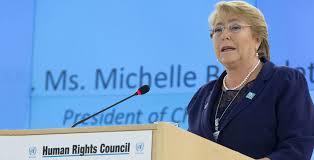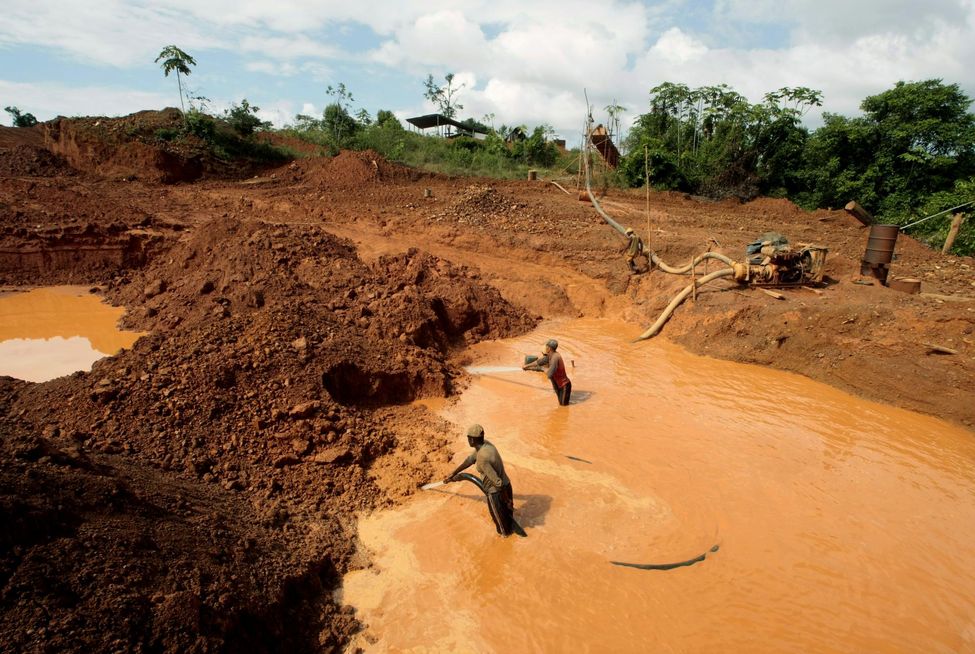Five alerts in the context of the complex humanitarian emergency
The GTEMV: Grupo de Trabajo sobre la Esclavitud Moderna en Venezuela (Working Group on Modern Slavery in Venezuela), an alliance of civil society organizations, exhorts the State to take urgent measures, including reducing the risks associated with forced migration and appointing specialized prosecutors to conduct more effective investigations and reverse widespread impunity.
For the commemoration of the World Day Against Trafficking in Persons on July 30, El Grupo de Trabajo sobre la Esclavitud Moderna en Venezuela identified the main threats arising from the deepening of the complex humanitarian emergency in the country. Such humanitarian emergency is expressed in an unstoppable deterioration of the quality of life of Venezuelans due to the breakdown of the State and the inability of its institutions to provide effective responses that guarantee the full validity of human rights.
The GTEMV is an alliance of civil society organizations interested in the dynamics of modern slavery. Since September 2017, with the support of the British Embassy in Caracas, the GTEMV has engaged on discussions with the purpose of contributing to the understanding of the problems and, as far as possible, providing solutions.
The members of the GTEMV have highlighted the five most pressing alerts regarding human trafficking:
1) Hunger
Food insecurity underlies and enhances all forms of exploitation. A considerable percentage of the population suffers from extreme needs, which make them vulnerable to exploitation, so that survival practices flourish. The exchange of sex for food is an example of those exploitation situations and increase the risks of human trafficking.
2) Forced migration
The complex humanitarian emergency in Venezuela has generated a human mobility crisis in Latin America. Forced migration is one of the main causes of the increase of risk factors and exposure of the Venezuelan population to human trafficking and to many neo-slave practices, both in Venezuela and in countries of transit and destination.
The deterioration of the quality of life, hyperinflation, shortages of food and medicines, the collapse of basic services such as electricity, drinking water, domestic gas and transport, and high personal and social insecurity favor the willingness of some migrants to risk exposure. They feel they have nothing to lose due to the lack of opportunities to cover their basic needs.
3) Women are the main victims
The new forms of slavery are not gender neutral. Women, including trans women, lesbians, female adolescents, and girls are the population group with the highest risk of exploitation. Abuse, sexual violence and transactional sex as possible source of income increase the possibility of them become victims of human trafficking and other forms of modern slavery. Adult women constitute 70% of the total victims. Additionally, women are used as a “hook” to persuade new victims, taking advantage of the relationship of trust and empathy that women generate among themselves. Many of the women used as “hooks” have been trafficked before. On their part, men, adolescent men and boys are vulnerable to situations of forced labor and in dangerous conditions. They can be forceful recruited by irregular armed groups linked to smuggling activities, but also in the agricultural, fisheries and mining sectors.
4) Other vulnerable groups
Children and adolescents. Children and adolescents are particularly vulnerable in Venezuela to human trafficking and other forms of modern slavery. In the context of the complex humanitarian emergency, children can become providers, force to meet their own needs or those of their families. They can also become involved in situations of transactional sex as a survival mechanism. In border areas, children and adolescents get involved with irregular armed groups and are at risk of forced recruitment, while in mining areas the chances of being subjected to labor and sexual exploitation are high. Being forced to beg is another worrysome situation, since there is a large number of people of all ages that beg to survive.
In the midst of forced migration crisis, crime networks have taken advantage of family break-up to capture children traveling along, separated or in the care of the extended family or other people. These situations emphasize the weaknesses of the Sistema de Protección Integral de Niños, Niñas y Adolescentes (Comprehensive Protection System for Children and Adolescents).
LGBTI population. In the case of trans women, the recruitment of trafficking victims may include offers to pay for the medical treatment for their sexual transition process as well as implants. In some cases, they are forced to leave Venezuela to practice prostitution, because they are heads of household and have no fixed support for the support of their families.
Indigenous populations: For the indigenous population and particularly for indigenous women, risk factors are associated with difficulties in obtaining identity documents, increasing the presence of non-state armed groups and the chaos of illegal mining.
5) Impunity
The dismantling of the country’s democratic institutions favors the crime of human trafficking and other forms of modern slavery. In general, criminal groups act freely, in an environment of impunity. This also applies to criminal groups engaged in human trafficking or other forms of exploitation. In the same way, in certain areas of the country, particularly towards the borders, the control of the territory and the population is not in the hands of the organs of the Public Authorities, but of irregular armed groups, which favors exploitation situations.
What the State must do
The work of the GTEMV has a human rights focus and, in that sense, it is based on the duty (responsibilities) of prevention and protection that States have with regard to human trafficking and other forms of modern slavery.
The Venezuelan State has tried to subscribe and ratify the main international instruments that govern the matter, however serious challenges persist regarding:
1) Comprehensive and effective prevention policies with the participation of civil society,
2) Criminal prosecution of the perpetrators, and
3) Protection, defense and accommodation of victims of human trafficking in safe conditions, which includes providing them with adequate food, psychosocial care and employment and education opportunities.
4) Damage repair.
The GTEMV proposes to the state authorities to urgently implement the following measures:
1) To optimize the official records of victims of the crime of human trafficking and other forms of exploitation to identify the magnitud of the problem.
2) To publish official statistics by age, gender, ethnicity, type of exploitation, mode of persuation, place or countries of destination and origin of trafficking, to facilitate civil society participation in the design, implementation and evaluation of public policies.
3) To promote cooperation with international human rights organizations specialized in trafficking and other similar forms of modern slavery, in order to strengthen public policies for prevention, investigation and sanction on this problem/crime in Venezuela.
4) To consider gender differences in the design and application of public policies, and emphasize the needs of rehabilitation and repair of damages caused to the victims.
5) To strength the Child Protection System, especially to prevent the risks associated with family breakdown link to the human mobility crisis caused by the complex humanitarian emergency in Venezuela.
6) To promote international cooperation in the fight against organized crime dedicated to human trafficking and other similar forms of modern slavery.
7) To facilitate access to legal justice for victims and / or their representatives.
8) To appoint specialized prosecutors to optimize criminal justice procedures to develop the investigation, prosecution and effectively sanction of those responsible of such crimes.
9) To reduce the risks associated with forced migration, by streamlining procedures for free transit and the right to identity. The difficult access to the documents necessary to migrate are is a risk factor that exposes migrants, victims of trafficking or people in need of international protection to vulnerabilities both at the exit from Venezuela and when trying to settle in the country of destination.
What citizens can do
After warning that human trafficking and similar forms of modern slavery constitute serious human rights violations that must be prevented and sanctioned by States, the GTEMV proposed a series of preventive measures at domestic levels:
1) Do not make deliveries of children and adolescents to the care of third parties without the participation of the competent authorities from the Protection System for Children and Adolescents, even when the third party offers to feed, care for and educate them.
2) To document and denounce situations for which you witness, or suspect of being forms of exploitation, especially those in which unaccompanied children and adolescents are involved.
3) To be wary of job offers or other benefits that you consider excessively advantageous.
4) To identify organizations seriously dedicated to the study of these issues that can help to identify when an offer of employment or other benefit is not reliable.
5) To be suspicious of job offers or other benefits (pleasure travel offers, wedding invitations) excessively profitable from people who have contacted you through digital and social media (email, Facebook, Instagram, Twitter, WhatsApp, or other), even if they are people with whom you have spent a lot of time, even years, exchanging messages.
6) To be wary of job offers or other benefits that seem overly profitable even if they come from people who have established a loving bond with you, either by virtual or face-to-face interactions.
7) The swindlers are astute and are modifying their methods of persuasion. We recommend to not only be cautious in the cases mentioned here, but to be alert in any case.
8) Never make the mistake of believing that, when receiving a suspicious offer, you can take advantage initially and then decide when to distance yourself. Part of the deception of the offers is to make believe that they are possible, but once contact is initiated, all control becomes in the hands of the swindler who usually acts within a network.
9) We identify some personal features that increase vulnerability but can be reduced by the individual and their family environment. We encourage the community to become aware of it.
a. People who are willing to take high risks.
b. People with a propensity to expect results in the short term.
c. People surrounded by family or friends who constantly encouraged them to take risks, or that to look for opportunities in other places, or to follow the example of other people who have done so.
10) If you decide to migrate, be sure or try to:
a. Plan your trip and estimate maintenance costs: rent, services, food, transportation, medications you would need, medical insurance and compare the costs with the minimum wage in the country.
b. Seek information about the legal requirements for admission, permanence, work and study (for you or your family) in the country of destination.
c. Carry all the necessary documentation and never lose sight of your passport or deliver it to third parties.
d. Have support networks of family and friends at the destination or that you can contact through digital communication technology.
e. Find the address of the Venezuelan Embassy or Consulate in the nearest city from your destination and have it handy.
f. Maintain communication with your family in the country of origin and establish a communication pattern that allows you to alert when something is wrong.




